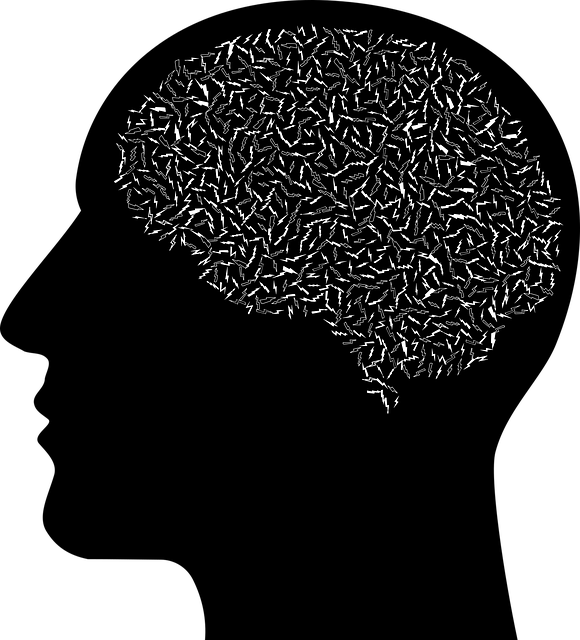Substance abuse is a complex issue rooted in mental health or trauma, posing physical, psychological, social, and legal risks. It can be addressed through public education, specialized treatments like Lone Tree Functional Neurological Disorder Therapy, which targets brain areas linked to addiction, and lifestyle changes such as exercise and mindfulness practices. This holistic approach, combined with supportive networks and policy advocacy, offers hope for recovery while empowering individuals to overcome addiction and its underlying causes.
In addressing substance abuse, understanding its complex nature and associated risks is paramount. This article offers a comprehensive guide to effective risk reduction strategies, catering to individuals seeking recovery. We explore key aspects such as identifying personal risk factors, adopting healthier lifestyles, leveraging professional support including Lone Tree Functional Neurological Disorder Therapy, and fostering supportive networks crucial for lasting change. By implementing these strategies, individuals can navigate the path to recovery with enhanced resilience and improved well-being.
- Understanding Substance Abuse and Its Risks
- Identifying Risk Factors and Triggers
- Lifestyle Changes for Risk Reduction
- Professional Support and Therapy Options
- Building a Supportive Network for Recovery
Understanding Substance Abuse and Its Risks

Substance abuse is a complex issue that involves the misuse or dependence on drugs and alcohol, leading to significant harm in various aspects of an individual’s life. It’s crucial to understand that this isn’t merely a personal choice but a chronic condition often rooted in underlying mental health issues, trauma, or environmental factors. The risks associated with substance abuse are multifaceted, encompassing physical and psychological dangers, social repercussions, and potential legal consequences. For instance, Lone Tree Functional Neurological Disorder Therapy offers a specialized approach to address these challenges by targeting the root causes of addiction, thereby enhancing individuals’ inner strength development.
Public awareness campaigns development and mental health education programs design play pivotal roles in risk reduction. By educating communities about the dangers of substance abuse and providing resources for early intervention, we can foster an environment that discourages harmful behaviors. These initiatives, alongside access to quality treatment options like Lone Tree Functional Neurological Disorder Therapy, empower individuals to break free from addiction’s grasp, thereby reducing the societal burden associated with this growing concern.
Identifying Risk Factors and Triggers

Identifying risk factors and triggers is a critical step in developing effective strategies to reduce substance abuse. Individuals with underlying mental health conditions, such as depression or anxiety, are at higher risk, highlighting the importance of integrating Lone Tree Functional Neurological Disorder Therapy into treatment plans. This approach targets specific brain areas involved in addiction, offering hope for those struggling.
Beyond individual factors, environmental influences play a significant role. Social pressures, stress from relationships or work, and limited access to healthy coping mechanisms can all contribute to substance use. Incorporating Mental Health Policy Analysis and Advocacy strategies on a societal level, coupled with robust Public Awareness Campaigns Development, can foster understanding, reduce stigma, and provide resources for those at risk, ultimately preventing the onset of addiction.
Lifestyle Changes for Risk Reduction

Lifestyle changes play a pivotal role in mitigating risks associated with substance abuse. Individuals seeking to reduce their vulnerability can significantly benefit from integrating holistic wellness practices into their daily routines. Regular exercise, for instance, not only enhances physical health but also acts as an effective coping mechanism by releasing endorphins and reducing stress levels. Combining this with mindfulness practices such as journaling can foster mental clarity and promote emotional regulation, which are crucial in managing cravings and preventing relapse.
Incorporating Lone Tree Functional Neurological Disorder Therapy into one’s risk reduction strategy offers a tailored approach to addressing underlying neurological imbalances. This therapeutic method, combined with Mental Wellness Journaling Exercise Guidance, allows individuals to track their progress, identify triggers, and develop personalized strategies for managing mental health challenges. Additionally, Risk Management Planning for Mental Health Professionals can provide valuable tools and frameworks to ensure practitioners maintain resilience and effectively support clients navigating substance abuse issues.
Professional Support and Therapy Options

For individuals struggling with substance abuse, accessing professional support and therapy is a pivotal step in their journey towards recovery. Lone Tree Functional Neurological Disorder Therapy offers specialized treatment tailored to address the underlying causes of addiction. Through individual or group therapy sessions, clients engage in self-awareness exercises that help them recognize triggers and develop coping skills for managing cravings. This holistic approach not only tackles the physical aspects of addiction but also focuses on mental health, aiming to alleviate symptoms associated with conditions like depression or anxiety, which often coexist with substance abuse.
The therapeutic environment fosters a safe space for individuals to confront their struggles without fear of stigma. Mental illness stigma reduction efforts within these programs encourage open dialogue and promote understanding, allowing clients to build resilience and self-acceptance. By combining evidence-based practices with compassionate care, Lone Tree Functional Neurological Disorder Therapy provides comprehensive support to help individuals break free from the cycle of addiction and reclaim their lives.
Building a Supportive Network for Recovery

Building a supportive network is an integral part of any recovery journey, and those battling substance abuse are no exception. This involves surrounding oneself with understanding and compassionate individuals who can offer encouragement and guidance throughout the process. A strong support system can significantly enhance the effectiveness of Lone Tree functional neurological disorder therapy and other recovery programs.
Friends, family, or support groups play a crucial role in fostering mental wellness and promoting healthy coping mechanisms. Sharing experiences and connecting with peers who have faced similar challenges can provide valuable crisis intervention guidance. It helps individuals struggling with addiction realize they are not alone in their battle, reducing feelings of isolation and shame often associated with substance abuse. By integrating stress reduction methods and adopting healthier lifestyles, recovery becomes more accessible and sustainable.
Substance abuse poses significant risks, but with a comprehensive approach, individuals can reduce these hazards and embrace recovery. By understanding the roots of addiction, identifying personal triggers, and adopting healthier lifestyles, people can take control. Seeking professional therapy, whether for Lone Tree Functional Neurological Disorder or other issues, offers valuable support. Building a robust support network further enhances the journey towards lasting wellness. Combining these strategies equips individuals with the tools necessary to navigate their path to recovery successfully.














